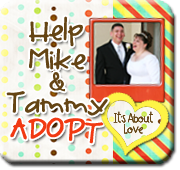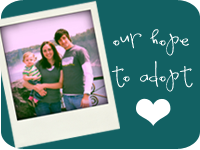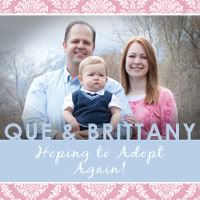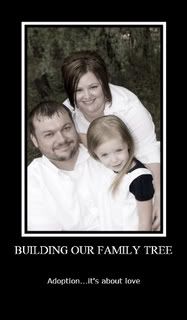I got the following from this website: http://family.findlaw.com/adoption/adoption-types/open-adoption-comparison.html
Decades ago, virtually all adoptions were closed. A closed adoption means that there is no contact whatsoever between the birthparents and the adoptive parents and child after the adoption takes place. In fact, there may be no contact before the adoption. But nowadays, the trend in adoptions in the United States is toward open adoptions, in which all the parties to an adoption meet and often remain in each other's lives.
Closed Adoptions
Closed adoptions are rare, but were the norm in adoptions in the past, when families usually used an agency to adopt a newborn. The prospective adoptive family would put their name on a list, and wait for the social worker to make a match. The adoptive parents didn't know where the child came from, or who his or her birthparents were. The child might not have even known that he or she came into the family through adoption. When adoptions are closed, the files are usually physically sealed. Even if the adoptive parents and birthparents know of each other at the time of the adoption, they do not stay in touch after the adoption takes place. The child often will not know who his or her birthparents are, especially before turning 18. Closed adoption continues to be common in international adoptions.
Open Adoptions
Increasingly common nowadays is the "open" adoption process, in which the adoptive parents actually meet and usually stay in touch with the birthparents. Most adoption agencies now encourage some degree of openness. As a general matter, these days the birthparents have a voice in choosing their child's adoptive parents. Commonly, the agency gives the birthparents biographies of prospective adoptive parents, and the birthparents pick the family they are most comfortable with. The birthparents and adoptive parents meet, and might be in touch frequently during the pregnancy. Many times the adoptive parents are able to witness their child's birth. Some families stay in touch through their adoption agency, especially on birthdays and holidays. Others become and remain friends.
And the following is taken from here: http://family.findlaw.com/adoption/adoption-types/open-adoption-faq.html
What is an open adoption?
An open adoption is one in which there is some degree of contact between the birthparents and the adoptive parents -- often this includes contact with the child as well. There is no one standard for open adoptions; each family works out an arrangement that works well for them. Some adoptive parents consider meeting the birthparents just once before the birth of the child, while others form ongoing relationships which may include written correspondence or visits.
What are the advantages of open adoptions?
Open adoptions often help reduce stress and worry by eliminating the power of the unknown: rather than fearing the day that a stranger will come knocking on their door to ask for the child back, adoptive parents are reassured by knowing the birthparents personally and dealing with them directly. This openness can be beneficial to the child as well, who will grow up with fewer questions -- and misconceptions -- than might a child of a closed adoption.
If you want your adoption to be open and decide to use an agency, be sure to find out their policies on open placements. Some agencies offer only closed or semi-open adoptions, and will not provide identifying information about birth or adoptive parents even if both families want the adoption to be open. On the other hand, independent adoptions -- where allowed -- permit any degree of openness desired by the birth and adoptive families.
Decades ago, virtually all adoptions were closed. A closed adoption means that there is no contact whatsoever between the birthparents and the adoptive parents and child after the adoption takes place. In fact, there may be no contact before the adoption. But nowadays, the trend in adoptions in the United States is toward open adoptions, in which all the parties to an adoption meet and often remain in each other's lives.
Closed Adoptions
Closed adoptions are rare, but were the norm in adoptions in the past, when families usually used an agency to adopt a newborn. The prospective adoptive family would put their name on a list, and wait for the social worker to make a match. The adoptive parents didn't know where the child came from, or who his or her birthparents were. The child might not have even known that he or she came into the family through adoption. When adoptions are closed, the files are usually physically sealed. Even if the adoptive parents and birthparents know of each other at the time of the adoption, they do not stay in touch after the adoption takes place. The child often will not know who his or her birthparents are, especially before turning 18. Closed adoption continues to be common in international adoptions.
Open Adoptions
Increasingly common nowadays is the "open" adoption process, in which the adoptive parents actually meet and usually stay in touch with the birthparents. Most adoption agencies now encourage some degree of openness. As a general matter, these days the birthparents have a voice in choosing their child's adoptive parents. Commonly, the agency gives the birthparents biographies of prospective adoptive parents, and the birthparents pick the family they are most comfortable with. The birthparents and adoptive parents meet, and might be in touch frequently during the pregnancy. Many times the adoptive parents are able to witness their child's birth. Some families stay in touch through their adoption agency, especially on birthdays and holidays. Others become and remain friends.
And the following is taken from here: http://family.findlaw.com/adoption/adoption-types/open-adoption-faq.html
What is an open adoption?
An open adoption is one in which there is some degree of contact between the birthparents and the adoptive parents -- often this includes contact with the child as well. There is no one standard for open adoptions; each family works out an arrangement that works well for them. Some adoptive parents consider meeting the birthparents just once before the birth of the child, while others form ongoing relationships which may include written correspondence or visits.
What are the advantages of open adoptions?
Open adoptions often help reduce stress and worry by eliminating the power of the unknown: rather than fearing the day that a stranger will come knocking on their door to ask for the child back, adoptive parents are reassured by knowing the birthparents personally and dealing with them directly. This openness can be beneficial to the child as well, who will grow up with fewer questions -- and misconceptions -- than might a child of a closed adoption.
If you want your adoption to be open and decide to use an agency, be sure to find out their policies on open placements. Some agencies offer only closed or semi-open adoptions, and will not provide identifying information about birth or adoptive parents even if both families want the adoption to be open. On the other hand, independent adoptions -- where allowed -- permit any degree of openness desired by the birth and adoptive families.








































No comments:
Post a Comment